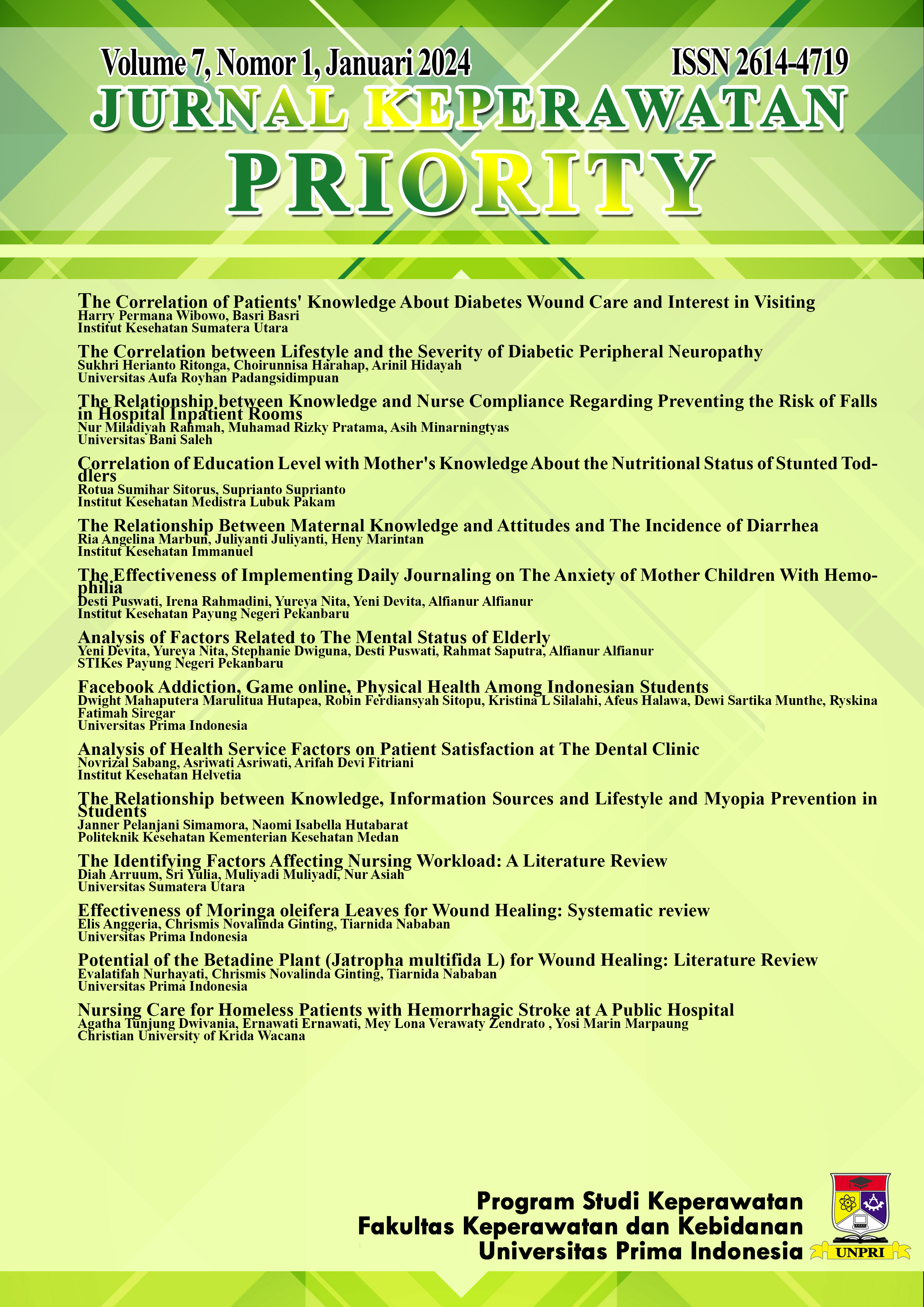Correlation of Education Level with Mother's Knowledge About the Nutritional Status of Stunted Toddlers
DOI:
https://doi.org/10.34012/jukep.v7i1.4472Keywords:
Pendidikan, pengetahuan, balita stuntingAbstract
Chronic malnutrition due to prolonged malnutrition resulting in stunted growth and development. Educated and knowledgeable mothers have a big influence on the pattern of regulating balanced food needs for the growth and development of toddlers. The research was directed at determining the correlation between educated and knowledgeable mothers on the nutritional status of stunted toddlers in the Namorambe Community Health Center work area. Quantitative descriptive research was conducted cross-sectionally. The population was 32 mothers who had stunted toddlers (0-59 months) and the total was the sample. Univariate and bivariate analyzes were carried out to describe the frequency distribution of respondents' characteristics and determine the correlation between educated and knowledgeable mothers regarding the nutritional status of stunted toddlers. The results showed that mothers ranged from 20-30 years old and had upper secondary education as many as 25 (78.1%) and 21 (65.6%); toddler age 37-60 months, male gender, stunted toddler, and poor maternal knowledge were 16 (50%), 17 (53.1%), 22 (68.8%) and 23 (71.9%); and as many as 21 (65.6%) and 12 (37.5%) respondents had high school education and poor knowledge; as well as the Chi-square analysis results of p-value = 0.038, respectively. In the research, there was a correlation between educated and knowledgeable mothers on the nutritional status of stunted toddlers in the Namorambe Community Health Center work area.
Downloads
Published
How to Cite
Issue
Section
License
Copyright (c) 2024 Rotua Sumihar Sitorus, Suprianto Suprianto

This work is licensed under a Creative Commons Attribution 4.0 International License.
Authors who publish their manuscripts through the Journal of Keperawatan Priority agree to the following:
- Copyright to the manuscripts of scientific papers in this Journal is held by the author.
- The author surrenders the rights when first publishing the manuscript of his scientific work and simultaneously the author grants permission / license by referring to the Creative Commons Attribution 4.0 International License to other parties to distribute his scientific work while still giving credit to the author and the Journal of Journal Keperawatan Priority as the first publication medium for the work.
- Matters relating to the non-exclusivity of the distribution of the Journal that publishes the author's scientific work can be agreed separately (for example: requests to place the work in the library of an institution or publish it as a book) with the author as one of the parties to the agreement and with credit to sJournal ofJournal Keperawatan Priority as the first publication medium for the work in question.
- Authors can and are expected to publish their work online (e.g. in a Repository or on their Organization's/Institution's website) before and during the manuscript submission process, as such efforts can increase citation exchange earlier and with a wider scope.

















